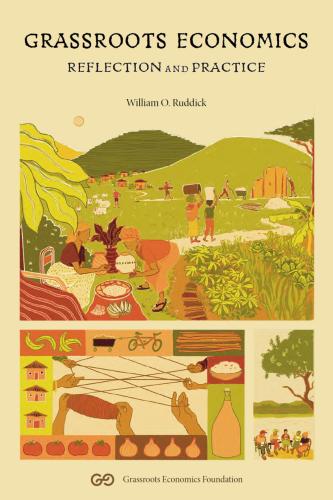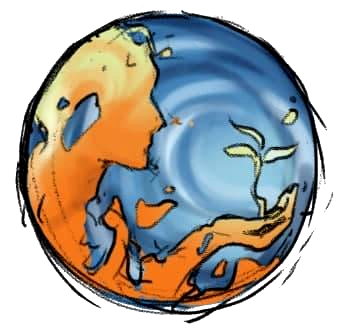Grassroots Economics

Grassroots Economics
A beautifully illustrated and concise volume that builds from natural mycorrhizal ecosystems to historic community practices and into a broader examination of strategies and practical tools to establish such systems and empower individuals and their communities.
The great virtue of this volume is that it departs from an evidence base of economic practice that has existed for hundreds of years or more around the world, while also being the subject of study by the author. Ruddick's exploration first of nature's patterns, and the flow of resources in the natural world is connected to a history of practice in the African context through Mweria and Rotating Labor Associations, more generally.
From this base, the author elaborates key principles and extends these concepts into the use of modern tools and digital ecosystems that may help groups pursue them, always with the caveat that while digital tools may provide a great utility, groups should be able to establish the same practices with or without them.
Part Two of the books provides essential detail and real case studies to creating such systems, including processes, exercises, games, and guides.
From the book: "Imagine a world in which communities no longer depend on distant, extractive economic systems but instead thrive through networks of shared resources and commitments. This vision isn’t just a dream—it’s happening today. I have witnessed it firsthand in Uganda and Kenya: networks of refugee camps, business in cities, and rural farmers who managed to coordinate the equivalent of billions of dollars’ worth of goods and services without a single currency transaction, relying instead on the pools of mutual commitments their ancestors used.
Pooling commitments, grounded in the ancient wisdom of systems that link the heart and mind of society, are powerful tools for modern economies. We have also looked at the way modern digital technologies are helping to bring these ancient protocols back to the world, expanding their reach, and allowing people to exchange commitments and pool resources without money and across vast regions and diverse needs. All over the world, similar networks are emerging and flourishing on every continent, connecting farmers, builders, educators, and others in ways that grow not just their resources, but their relationships, skills, healthy ecosystems,
and their sense of belonging and purpose. We are in a transitory phase, and today’s digital technologies present an opportunity to step (back) into forms of symbiosis."
Published by the Grassroots Economics Foundation
